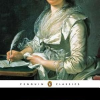
By Stefan Szczelkun
It was a pragmatic thought. Could working-class artists be made more visible in the world through using published books? Could they slip onto the shelves of bookshops by knowing the right formula? The formula being an ISBN, a book spine with title on, offset litho printing and a professional cover design.
I’d found this democratic formula by falling into a countercultural faultline in 1972. Unicorn Bookshop in Brighton published my renegade architectural project which was asking what is architecture? Starting with what is shelter? I made a scrapbook and hand-copied images to get around copyright restrictions. I talked to a local printer. Because the cultural warp of the Sixties counterculture allowed for oddities, inclusion and innovation, it was a success in the UK and US. So I had gotten this insider publishing experience. I knew about author’s contracts, the magic of ISBN numbers, the technical limits of offset litho printing, keeping the unit cost down, having enough pages for a spine (a bookshop requirement); and other such info.
So the idea was to offer this slim publishing knowhow to working-class artists in the 1980s. There was a lot of energy in the Brixton Artists Collective 1983 – 86. (See Brixton50.com to appreciate the scale of this…) I found another local working-class artist to work with, Graham Harwood. He was good at graphics and had been making photocopied books of his collages. It was easy to persuade him to move on to offset litho.
So how to get around the fact we had no capital and probably not a particularly profit-making enterprise? The idea was that the artists had to raise the print bill but we’d supply an ‘imprint’? I.E. I bought a set of 100 ISBN numbers and Graham designed a logo. From the scrapbooks I knew a friendly communist book distributor – Central Books, run by Bill Norris. They agreed to distribute our books to bookshops for the usual 50%. We called the imprint Working Press: books by and about working-class artists. Just to make our mission unmistakeable!
Zap Pow!! We were ‘in business’. Working Press: books by and about working-class artists was born.
Collaborations
We started in 1986 with two of our own book projects. My documentation of the work I had been doing; Collaborations and Graham’s wordless graphic novel John and Other stories. It worked! Within six months we had sold enough books to get the money we had begged, borrowed and stolen to pay the printers, back. A print run of 1000 was needed to get the ‘unit cost’ down, so the books could compete with the average price of a paperback and sell for about £5 each. Both books were rough and ready, and resisted the nice design that was the publishing norm – but they still sold! There was still a national network of alternative bookshops in every town willing to try almost any book…now there’s only Housmans with this spirit. But there is also no cultural underground in the way there still was in the Eighties.
Collaborations
So then: to every working-class artist I met, I said “Hey that’s nice…would you like to do a book with Working Press? You’ll need to do the layout and proofreading yourself and raise £XX to pay the printer. The book has to have a spine. We will put your book in a simple catalogue flyer and publicise it.”
Anyway this model worked, and artists willing to put their work into book-form were found and so in the next ten years we published 18 titles and most of them recouped their printing cost or more. Central Books paid us and we paid the authors less 10% to pay for expenses like postage and printing the catalogue. We took no wages or personal expenses.
The authors also formed a community of sorts and we had meetings and even a day conference. We also joined the ‘Federation of Working Writers and Community Publishers’ which was a national network of local groups whose most radical aim was to ‘dis-establish literature’! They had yearly gatherings over several days – a festival with readings and discussions, but also the essential AGM, held in different cities around the UK. They even managed to get some Arts Council funding and had a paid admin worker for a few years.
Rise With Your Class Not From It
The project lasted for ten years. Another decade or so later Emmanuelle Waeckerle, who worked at UCA in Farnham, found some money to acquire the Working Press archive for the university archive. She raised more money to activate the archive with some events, and put it to test as a teaching resource. The main lasting product of this is a beautifully designed and free to download ebook, Rise With Your Class Not From It which tells a more detailed story of Working Press. This gives the names of all the artists who made books and is available here.
This was a formula that worked at that time. In spite of the surprising survival of the print format into the present day I don’t think this exact formula would work today. But something would! Today there are a lot more independent book and zine fairs, and a lot of live reading events. I went to one last night and there was no bookstall, just a lot of book reading groups. Most big galleries have little bookshops attached, but you have to charm each bookshop manager individually, and pick up and supply.
But then there was the personal effect of Working Press on me. I had made a community of working-class intellectuals around me and it lifted my thinking. I made three books myself and pursued the idea of working-class artists being aware of ourselves and the barriers we face. And then daring to think about how and why those barriers had arisen from the history of class oppression. So Working Press had the effect of making a defensive and also stimulating ‘thought castle’ in which to think stuff that was antithetical to what I was ‘supposed to’ think. And I actually wrote all that stuff and published it. This supportive atmosphere contributed to me being able to think about the historical repression of working-class culture by middle-class mediators. That resulted in my book The Conspiracy of Good Taste which is still in print.
Class exploitation and oppression
But hang on! Before I sign off – why did I do all this? It was the big idea of ending class oppression! We all know what class exploitation is … but class oppression? As I understand it, it is a mental aberration which causes us to believe we are lesser humans than we are. We’re not born with it. It somehow seeps into our minds from our environment. It’s reinforced by those around us so it feels normal. So when I got my first book published in 1972 there were looks of astonishment in my family. Not really possible – we were not the sort of people who authored books.
Class oppression is a mindset that says we were born to follow not to lead; to read but not to write. We just don’t feel entitled to do such things. These mental aberrations needed to be contradicted. Some people don’t have them installed so tenaciously as others. I see oppression as something that must be able to be analysed and put right, just like we can analyse why our car isn’t functioning at its best. Or maybe more like a surgeon diagnosing a body dysfunction.















